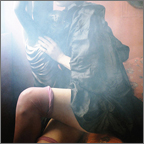
(June 2010) It’s been quite a while since Type released an electronic record that came anywhere close to being conventional, opting instead for a steady output of wildly experimental and dark ambient outings. Chances are you will have come across the term “kosmische musik” in any number of reviews by now and the origins and meaning of the term are entrenched in the annals of musical history. But to bypass any unnecessary banging on about seventies experimentalists like Tangerine Dream, Cluster, Popol Vuh or even Kraftwerk, suffice it to say that Porcelain Opera and a number of recent new releases from the likes of Roll the Dice, Emeralds or Oneohtrix Point Never are all part of a renewed interest in the pure analogue synthesiser sounds that typified the kosmische movement.
This now highly prevalent digging into the musical past is a sign that electronic music is once again seeking to re-invent itself in the hope of carving a new path through the seas of homogenised electronica that has over-saturated the market for so long. Noise scientists like Akira Rabelais or label-mates Yellow Swans have pushed sonic boundaries in surprising, often cacophonous ways and modern classical is undergoing something of a revolution too, but much of this work remains highly esoteric. Rene Hell’s take on all this fuses a dash of kosmische with industrial textures, experimental BBC Radiophonic Workshop sound design and sample-fuelled ambient to create something far more immediate, accessible and intriguing.
Porcelain Opera certainly isn’t conventional, nor is it a predominantly dark or sinister aesthetic that is being pursued here. Album opener “Razor. P+,” for example, pipes delicate organ tones and bubbling torrents of gurgling, pitch-shifted and distorted voices through a phasing ether of sixties sci-fi percussive smashes that give way in the second half to a weird buzzing of what could be treated piano torture followed by a fading, queasy arpeggio synth warble. Many of these motifs (most notably and effectively the bizarre sampled voices) are repeated throughout, the harsher “Prize Mischief Hold” evoking a Frankensteinian laboratory that restrains a throbbing machine-creature within a dangerously unstable grid of pulsing electrical energy.
Porcelain Opera builds on these assets in “L. Minx” as the ominous drones of menacing warplanes soar overhead, clawing squeaks and squawks of noise scour devastated aural terrain and garbled radio communications phase in and out of hearing. Yet even here the tone lightens (if somewhat deafeningly) as time passes, more burbling voices and sweeping waves of chattering, reverberating percussion rising in swirling smoke trails to the tune of a victorious synth melody. “IV 18:54” stands out from the rest as a pure and simple moth-to-flame seductress of gently flickering, spacious, gas-powered pads and “Gas” closes the album with simple, softly processed, arpeggio stylophone notes and a feathered, phasing drone.
Porcelain Opera enters the psyche like an intense, euphoric but ultimately inexplicable dream that once woken from can only be very slightly recalled which makes it an exceptionally compelling experience.
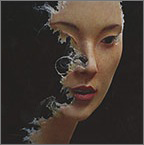
Porcelain Opera is yet another Type release that, err, doesn’t overstay its welcome shall we say? At a modest thirty-four minutes and featuring only six tracks one can’t help thinking EP rather than LP, but to be honest in this case it really, really works. What highlights the diminutive run-time even more, however, is a bonus item that continues Type’s recent trend of releasing totally exclusive compact discs with initial copies of their lovingly presented limited vinyl editions. And so we have Rogue Camera, a full-length album that, with twice as many tracks, consequently appears more substantial than the parent release!
Where Porcelain Opera is intense, throbbing and quite alien, Rogue Camera splices more familiar and modern (sounding at least) electronic touches with the dense analogue layers. Considering that this is a collection of additional material from a prolific artist, it holds up exceptionally well as a fully fledged album in it’s own right. In fact it is a shame that this hasn’t been gifted a full release – sure it gets its own catalogue number, but it could easily have worked as a second full Rene Hell release on the label.
“Baroque Arcade” (one of Rogue Camera‘s greatest assets) begins a five-piece sequence of variations on a theme, a night ride through drenched, multi-layered drones and atmospheres, speeding cars sending up torrents of water from waterlogged roads in a fine spray of gorgeous hi-hat percussive precipitation and swirling clouds of hiss. “Club Speed” echoes “Prize Mischief Hold” as it erupts in torrents of repetitive electrical bursts and rippling cosmic undercurrents, “Lucifer Pt. 2” slows “Baroque Arcade” to a sedate cruising speed and “Glass Nail” describes a languid slow-motion as fizzing synth sweeps pan and stretch across the shimmering soundstage.
“Club Outing (Version)” evokes a warm but soaking deluge from beige skies heavy with palpably high atmospheric pressures on a humid summer evening, whilst “Porcelain Hands” sports more solemn, echoing arpeggiated tones. “Open Vic Flower” is true to its name, standing out in the same way “IV 18:54” does on ‘Porcelain Opera’ as delicate and fragile coruscating networks of florid keys spiral out of the ether and “Downstairs” provides a dense epilogue repeating the motifs prevalent on Porcelain Opera.
Rogue Camera arguably lacks the severity, focus and fine-tuning of Porcelain Opera but is still a compelling and extremely generous addition to the limited vinyl edition that makes it absolutely essential. Just be quick.
Both Porcelain Opera and Rogue Camera are out now on Type. [Listen | Purchase]






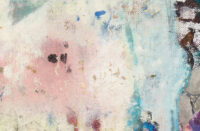
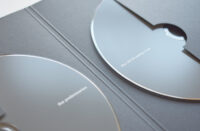
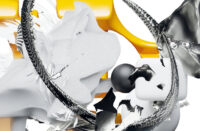
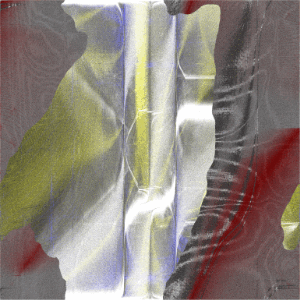
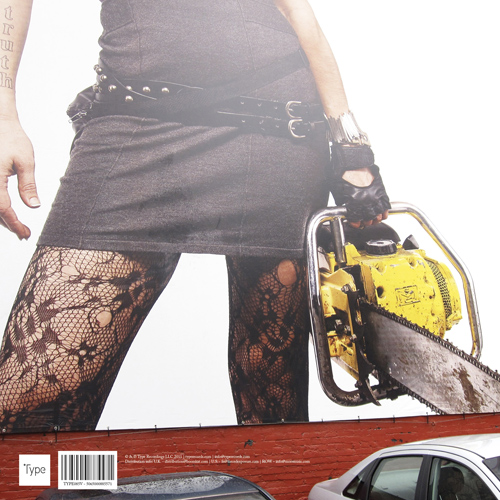

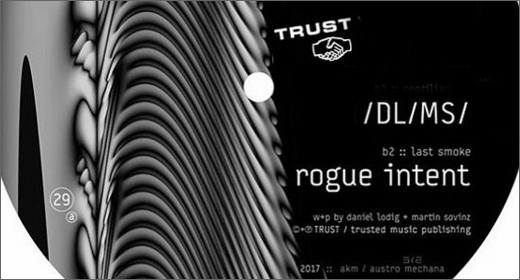
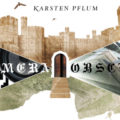
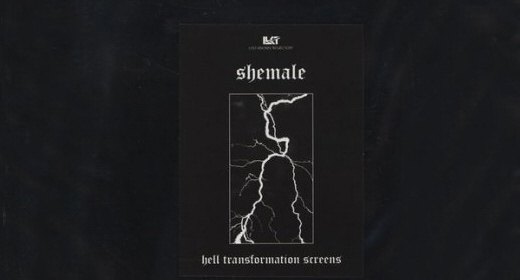


![Pole :: Tempus Remixes (Mute) — [concise]](https://igloomag.com/wp/wp-content/uploads/2025/04/pole-tempus-remixes_feat-75x75.jpg)






![Hasbeen :: Bunker Symphonies II (Clean Error) — [concise]](https://igloomag.com/wp/wp-content/uploads/2025/04/hasbeen-bunker-symphonies-ii_feat-75x75.jpg)
